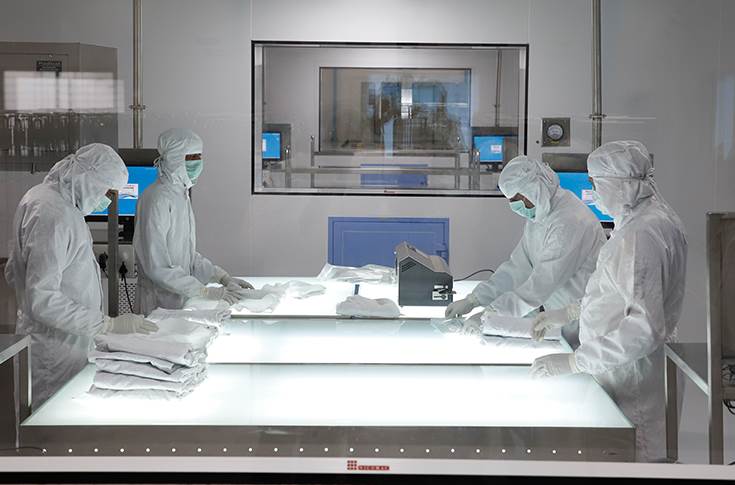Picture this: Workers clad in standard-issue workwear, step onto the factory floor involved in cell manufacturing for electric vehicles (EVs). Their every move—shuffling across the floor, reaching for components—accumulates static electricity. Safe as it may seem, when left unchecked, the static charge when left unchecked, can wreak havoc on delicate electronic circuits.
PCBs (printed circuit boards) are designed to handle microamps of current, which in common parlance are tiny in amount. But static charges can unleash a sudden burst of current—up to amps which could mean a full blown electrical storm.
To mitigate problems such as these for the electric vehicle industry, Finland-based Lindstrom has begun offering specialised uniforms that come with carbon filaments in the fabrics. The carbon filaments help distribute static charges across the fabric grid, preventing the charges from passing through. This makes the garment more conductive, allowing any static buildup on the surface to dissipate across the fabric instead of discharging in a concentrated way onto electronic components during manufacturing.
Jayant Roy, MD, Lindstrom India, said in an interaction with Autocar Professional, “The garments are designed to absorb static charges from the body to prevent issues like circuit failures that could occur if a high-voltage static discharge contacted sensitive electronic parts during the assembly process.”
Further talking about Lindstrom’s overall presence in India’s fast growing automotive industry, Roy highlighted that many of the company’s services, such as those for paint shop and body shop processes, are in great demand to protect users from solvents, paint spray, and sparks, respectively. These garments are designed differently for the paint shop than the body shop, considering factors like static charge protection, durability, and fire retardant properties.
Other areas in automotive that require workwear include after-sales workshops for mechanics, added Roy before continuing, “In India, the automobile industry accounts for 3–5% of the company’s total revenue.” The company, however, refused to reveal the names of its automotive customers, citing confidentiality clauses or the company’s earnings from Indian operations.
Lindstrom India, a 100% subsidiary of the Finnish Lindstrom Oy, a global textile rental company providing workwear and cleanroom workwear services, opened its second cleanroom facility in November last year and relocated to a larger, more modern, state-of-the-art workwear facility in Hyderabad, Telangana. Spanning over three acres, the facility aims to meet the increasing demand in the region for Lindstrom’s services in critical industries such as pharmaceuticals, food processing, healthcare, electronics, and automobiles.
Lindstrom India which is headquartered in Mumbai, has more than three million garments in circulation with its service centres in 11 cities, including Chennai, Mumbai, Delhi, Hyderabad, Kolkata, Bengaluru, Panchkula, Vadodara, Vizag, Tinsukia, and Pune.
Sustainable workwear
Lindstrom executives claim that the company is including recycled polyester from PET bottles in its workwear garment collection, aligning with the company’s commitment to science-based climate targets and emphasising environmental responsibility.
A process that involves sorting and cleaning PET bottles, mechanically shredding them into small flakes, and then melting and purifying the material. The resulting fibres are combined with 35% cotton, creating a versatile fabric that merges the comfort of cotton with the durability of polyester.
Anisha Mukherjee, Head of Procurement and Sustainability at Lindstrom India, said, “The primary advantage of 65% recycled polyester and 35% cotton fabric lies in its reduced environmental impact. By incorporating recycled polyester, which is derived from used plastic bottles, the production process helps divert plastic waste from landfills. This not only conserves resources but also diminishes the need for virgin polyester production, a process known for its high energy consumption and greenhouse gas emissions.”
The top company executives pointed out that the production of recycled polyester textiles reduces the demand for new raw materials and lessens the environmental impact associated with traditional polyester production. According to estimates from the Textile Exchange, the production of recycled polyester materials could yield 30% lower CO2 emissions compared to virgin polyester materials, as it uses 45% less energy and 20% less water. Besides reducing emissions, recycling also keeps plastic bottles out of oceans and landfills.
Recycling polyester requires significantly less energy compared to the production of virgin polyester, and blending 35% cotton with recycled polyester mitigates the overall water footprint, they added.



